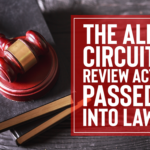Stories of corporate wrongdoing often come and go from the headlines, but the revelations of the ongoing investigations into fraudulent practices at Wells Fargo bank have earned the continuing ire of Congress and the American public for its shameless actions in setting up millions of fake accounts in the names of real customers, earning untold millions of the unauthorized accounts while sticking unsuspecting customers with the bills. Wells Fargo’s top leadership has made matters worse by scapegoating its own employees for the widespread misdeeds – including firing 5,300 mostly low-level employees – while honoring the executive who led the “fake accounts” department with a $124 million send-off and continuing to pay huge compensation to its CEO John Stumpf who has overseen the company through one corporate scandal after another.
Although the illegal behavior at Wells Fargo has gone on for years, courageous whistleblowers helped bring the wrongdoing to the government’s attention, and their stories demonstrate why working with a trusted, outside attorney can be the best way to report wrongdoing while protecting one’s own interests.
Fired For Voicing Their Ethical Concerns
Yesenia Guitron, a Wells Fargo branch employee in California, had noticed for years that the bank was opening as many 10-15 unauthorized credit cards per customer and took her concerns to the Wells Fargo Human Resources department. She told reporters that, a result of her repeated complaints regarding the illegal practices, she was fired from the company. The bank continues to defend itself by saying she was fired for not meeting her sales goals, a highly questionable reason given the fact that most observers point to the bank’s sales goals programs as the central cause of the widespread fraud.
Another banker, Bill Bado, was also fired in 2013 after he sent an email to Wells Fargo representatives voicing his concerns about the unauthorized accounts that were being opened. Bado had called an ethics hotline to report the fraudulent activity that he was being instructed to engage in, only to find that actually using the internal ethics procedures created by the bank would result in him losing his job. Bado told CNN, “They ruined my life.” The reason the bank gave for firing Bado was “tardiness,” despite the fact the termination came only eight days after he called the ethics hotline. Other employees reported whistleblowers being fired for showing up two minutes late to work after reporting wrongdoing, suggesting the bank was creating false reasons for the terminations.
Retaliation is Illegal, But You Need Protection
The actions that Wells Fargo took in firing or otherwise penalizing workers for reporting fraud are considered retaliation, which is strictly forbidden by state and federal law. Wells Fargo officials now acknowledge that any such actions are “regrettable,” but the fact that such retaliatory actions appear to have taken place for years and are only now being lamented by the bank after they have been “caught” suggests that the bank’s internal whistleblowing procedures were not to be trusted.
Clearly, not all businesses engage in the type of retaliatory action against employees who report wrongdoing internally, but it also makes sense that executives who are willing to tolerate the illegal behavior underlying internal whistleblower complaints are also willing to tolerate further illegal behavior in retaliating against those whistleblowers.
The reported retaliation against internal whistleblowers at Wells Fargo should serve as a lesson to potential whistleblowers at other organizations, which is that they should seek out an experienced whistleblower attorney who can take the proper steps to report the illegal behavior while protecting the employee and potentially obtaining a government reward for the information through a large whistleblower award.
Legal Guidance for Whistleblowers
You don’t have to go through the process of deciding whether to go forward as a whistleblower on your own. Kreindler & Associates is dedicated exclusively to protecting and helping whistleblowers who make the courageous decision to expose fraud. If you are considering making a whistleblower claim or feel that you’ve been the victim of wrongful retaliation for having done so, contact us today. We’re here to answer all of your questions and guide you through the whistleblowing process.




